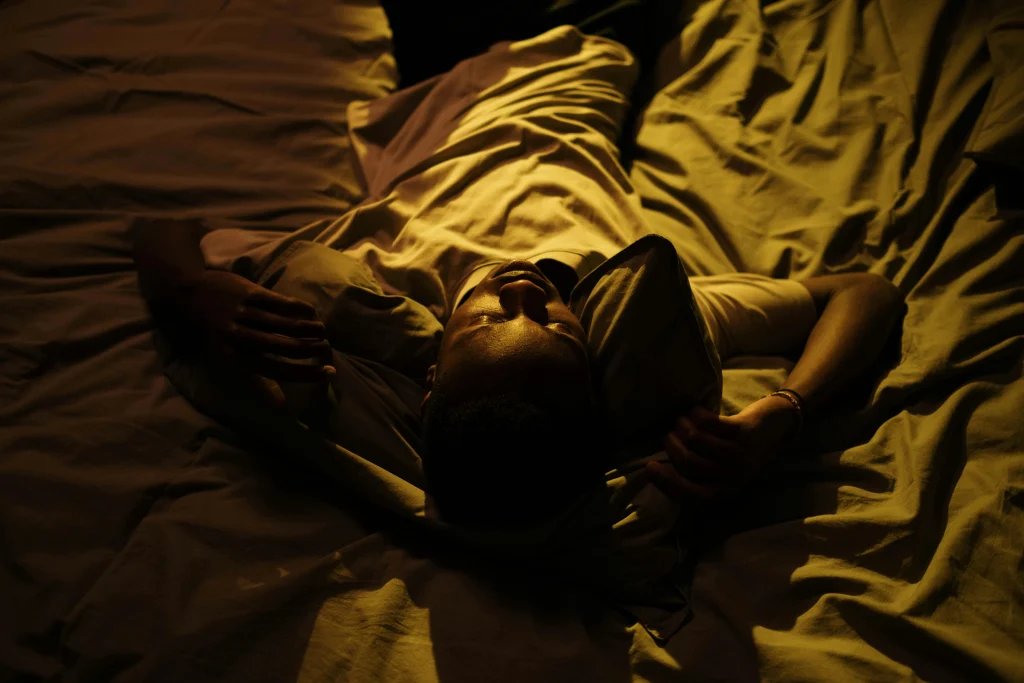The Man Who Never Sleeps: How Mehmet Survived 60 Years Without Sleeping?

- The Man Who Never Sleeps: How Mehmet Survived 60 Years Without Sleeping?
- Why We Need Sleep
- The Deadly Consequences of No Sleep
- How Did Mehmet Survive 60 Years Without Sleep?
- The Science of Sleep and Survival
- The Ideal Sleep for a Healthy Life

In the heart of Eskişehir, Turkey, a man named Mehmet defies all logic of human biology. Now 90 years old, Mehmet’s story begins in his youth, when he enjoyed deep, restorative sleep just like everyone else. One day, however, everything changed—he stopped feeling the need for sleep altogether. Mehmet’s life took a bizarre turn as he carried on with his daily routines, seemingly immune to the effects of sleeplessness.
Over the decades, Mehmet worked tirelessly as a railway guard and even took on additional work as a construction laborer, all while claiming he hadn’t closed his eyes for rest in decades. His extraordinary tale left doctors, scientists, and curious onlookers questioning the boundaries of human biology. How could one man live without sleep?
Why We Need Sleep
Sleep is not just a luxury—it is a biological necessity. The human brain and body depend on sleep to perform vital functions such as repairing cells, consolidating memories, and regulating emotions. Without it, our systems begin to break down rapidly.
To give an example, after 24 hours of sleep deprivation, concentration and decision-making abilities decline significantly. By 36 hours, the body’s stress hormones spike, mood swings intensify, and the immune system weakens. At the 48-hour mark, hallucinations and cognitive impairment set in as the brain struggles to cope. Beyond 96 hours, the body enforces microsleeps—brief, uncontrollable moments of unconsciousness—as a desperate attempt to prevent collapse.
The human brain’s inability to function without rest underscores how deeply wired we are to sleep. For most, there is no escape; the body will eventually succumb, forcing us into unconsciousness for survival.
The Deadly Consequences of No Sleep
Since Mehmet claimed that he hasn’t slept for 60 years, let’s evaluate what might cause someone not to be able to sleep at all. The name of this illness is Fatal Familial Insomnia, and it generally results in a death sentence. This genetic disorder causes the brain to progressively lose its ability to initiate sleep, leading to severe physical and mental deterioration. Most individuals with this condition do not survive beyond a few months once symptoms appear.
If one with no sleep would die in a few months, this raises the pressing question: how could Mehmet, who claims not to have slept for 60 years, still be alive and well?
How Did Mehmet Survive 60 Years Without Sleep?

The question of how Mehmet endured such an apparent lack of sleep without succumbing to the consequences has fascinated and baffled all who hear his story. For years, Mehmet himself believed he was an anomaly of nature, immune to the universal need for rest. His family, who never saw him asleep, were equally convinced. Was Mehmet’s body truly defying science?
After the story appeared on online and news channel, doctors evaluated his situation. They found out what was behind the story ultimately. The answer lies in a combination of rare medical conditions that created the illusion of sleeplessness. Doctors diagnosed Mehmet with “Subjective Total Insomnia,” a disorder that prevents individuals from recognizing they’ve slept. Mehmet’s sleep is fragmented, shallow, and brief, occurring in microepisodes that go unnoticed even by him. These tiny moments of rest were enough to sustain his body, though they were far from the restorative sleep most people experience.
Additionally, Mehmet has “Sleeping with Open Eyes,” a condition where individuals sleep while their eyes remain open. This made it appear to those around him that he was awake at all times, further reinforcing the belief that he hadn’t slept in decades.
Together, these disorders altered Mehmet’s perception of reality. While he believed he was entirely awake, his body was secretly stealing moments of rest to keep him alive. So, his story is not one of superhuman defiance of biology but rather an extraordinary interplay of rare medical conditions.
The Science of Sleep and Survival
Mehmet’s case, though exceptional, aligns with what science tells us about sleep. Complete sleep deprivation for extended periods—weeks or months—is incompatible with life. The longest a human has been documented to survive without sleep is 11 days, and even that resulted in severe physical and mental consequences.
Mehmet’s survival highlights the importance of sleep, no matter how minimal it may be. His brief episodes of shallow rest were enough to sustain him, but for most people, anything less than consistent, restorative sleep leads to rapid deterioration and even death.
The Ideal Sleep for a Healthy Life
While Mehmet’s story captivates the imagination, it serves as a reminder of how essential sleep is for everyone. Experts recommend 7-9 hours of quality sleep per night for adults to maintain optimal health and well-being. These figures increase as the age increases. Ignoring the body’s need for rest can lead to long-term consequences, from weakened immunity to chronic illnesses.
Mehmet’s journey is a fascinating exception, but it underscores a universal truth: sleep is not optional—it’s a fundamental requirement for life. Thanks for your time to read our interesting story. If you are interested in such contents, don’t forget to visit our website to read other articles.
